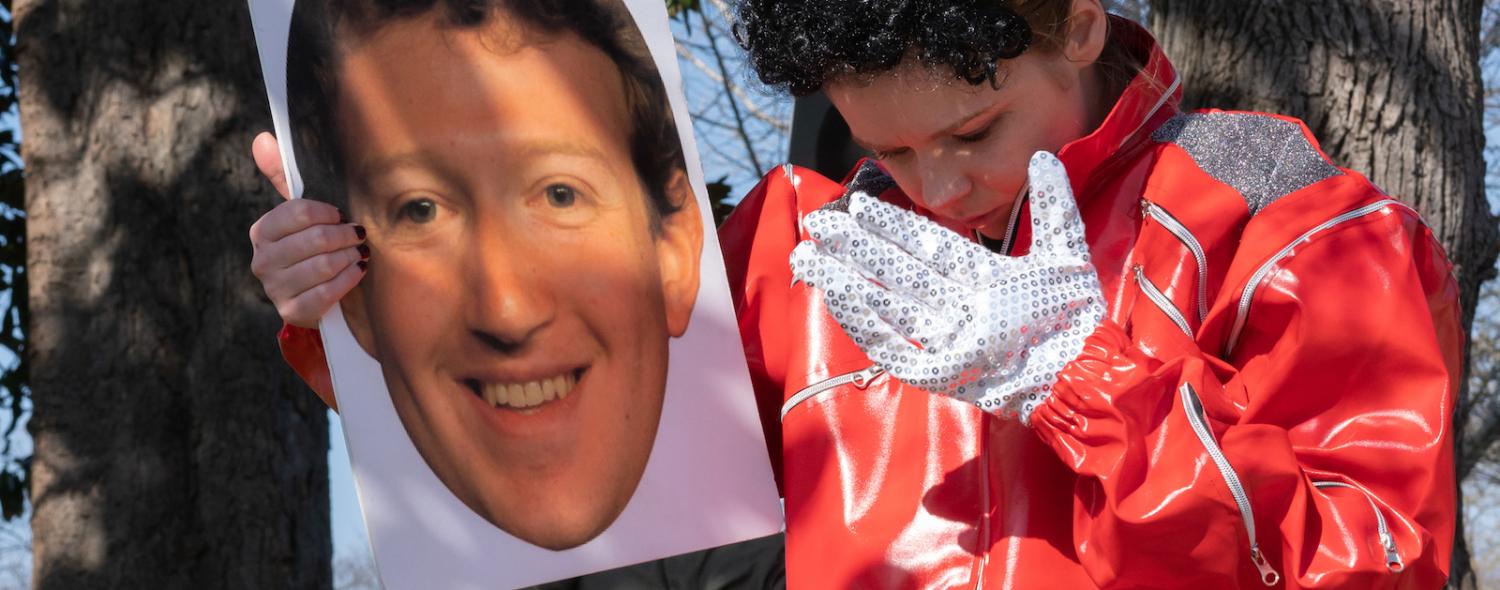I joined Facebook in 2010. As if by magic, the lives of ‘friends’ lost in time and space materialised on my laptop, so I could partake of their everyday moods, their exotic vacations, their children’s sporting events. This triumph of intimacy over distance accounted for Facebook’s astonishing early growth. In a recent post commemorating the 15th anniversary of the social network, founder Mark Zuckerberg recalled:
I built a simple website organised around people, where we could connect with the people we wanted and share what was important to us.
Facebook at 15 has become a great deal more than that. It’s the largest repository of images in the history of the human race, for example. It’s a gigantic billboard towering over 2.7 billion users, for which advertisers in 2018 paid roughly $55 billion. It’s a labyrinth of algorithms that bind and loosen according to opaque criteria. It’s even a global suicide watch, searching content to alert responders of a user’s self-destructive tendencies.
And, notoriously, Facebook is a battleground in a sociopolitical conflict I have tracked for years.
Everywhere, the public is in revolt against the elites who manage the great institutions of modern society. Nearly everywhere, the public has mustered virtually on social media to organize and – in Clay Shirky’s term – “self-assemble” on the streets. Examples can be multiplied at will. Egypt’s Tahrir Square protests in 2011 were first called on Facebook. The same is true of the ongoing ‘yellow vest’ movement in France. Elite-bashing populists such as Italy’s Matteo Salvini and Brazil’s Jair Bolsonaro have ridden Facebook to electoral success. At Bolsonaro’s inauguration, jubilant crowds chanted, “WhatsApp, WhatsApp! Facebook, Facebook!”
Facebook content today is routinely described ‘a threat to democracy’ when not actually ‘democracy-poisoning’.
The elites, ever suspicious of anything digital, have mounted a determined counterattack. The German government has expanded privacy concerns until these threaten Facebook’s business model. The platform’s “hate speech problem” has been invoked to block opinions the elites find distasteful – for example, on immigration.
The tipping point, however, came in 2016 with Donald Trump’s victory and the claim that ‘fake news’ on Facebook, planted by Russian agents, had decided the election. For Democrats, liberals, and the bulk of the news media, this interpretation placed Facebook next only to Trump himself among the devils tormenting American political life. Facebook content today is routinely described “a threat to democracy” when not actually “democracy-poisoning”. A site once known for intimate ‘likes’ and ‘pokes’ is now said to cause depression and make users “physically sick”. “Connectivity”, warns social media maven Zeynep Tufekci, “is not a pony.”
Calls have mounted for the US government to regulate Facebook as a public utility, or to bring anti-trust action and “break up” the social media giant.
Zuckerberg’s response to these assaults has been, in a sense, predictable. At $60 billion in personal worth, Zuckerberg is nothing if not an elite – and he has tried, rather desperately, to accommodate elite concerns. He has apologised for privacy breaches and Russian electoral manipulation. He has thrown billions of dollars, thousands of workers, and the latest artificial intelligence technology to preserve what he calls “safety and security” in content. He has laboured to filter fake news out of Facebook, apparently with some success.
None of it matters. The elites have hardened their hearts. They expect Facebook to become a Palo Alto version of the Chinese internet police. The company’s media image, measured by Media Tenor International, remains far worse than that of other unloved tech behemoths like Google or Amazon.
But the most interesting and least noticed aspect of this quarrel is the class to which Zuckerberg, in fact, belongs: that of digital technology’s movers and shakers, what I would call, loosely, the Silicon Valley elites. Members of this group differ from political and media elites in one important respect. They identify their business with disruption and are content to be known as ‘chaos monkeys’. One of Zuckerberg’s early mantras was “Move fast and break things”.
Zuckerberg is aware that the conflict swirling around Facebook pits “large hierarchical institutions” against “networks of people who have the freedom to interact with whom they want”. Several remarkable passages in his 15th anniversary manifesto make it clear that he intends to align his company with the networked public, and is comfortable with any short-term political breakage that might ensue:
As networks of people replace traditional hierarchies and reshape many institutions in our society… there is a tendency of some people to lament this change, to overly emphasize the negative, and in some cases to go as far as saying the shift to empowering people in the ways the internet and these networks do is mostly harmful to society and democracy.
To the contrary, while any rapid social change creates uncertainty, I believe what we’re seeing is people having more power, and a long term trend reshaping society to be more open and accountable over time.
The statement has already drawn fire from the usual quarters. Whether Zuckerberg stands on principle or lapses into apology mode is not, I believe, a trivial question. Either way, we are likely to see unexpected twists – fractures and heresies within the elite class – in the next stage of the revolt of the public.

